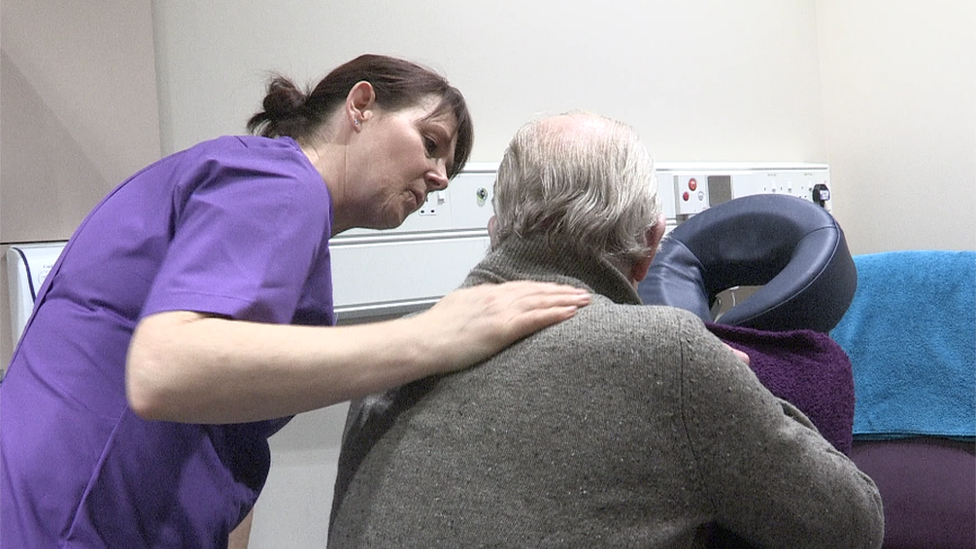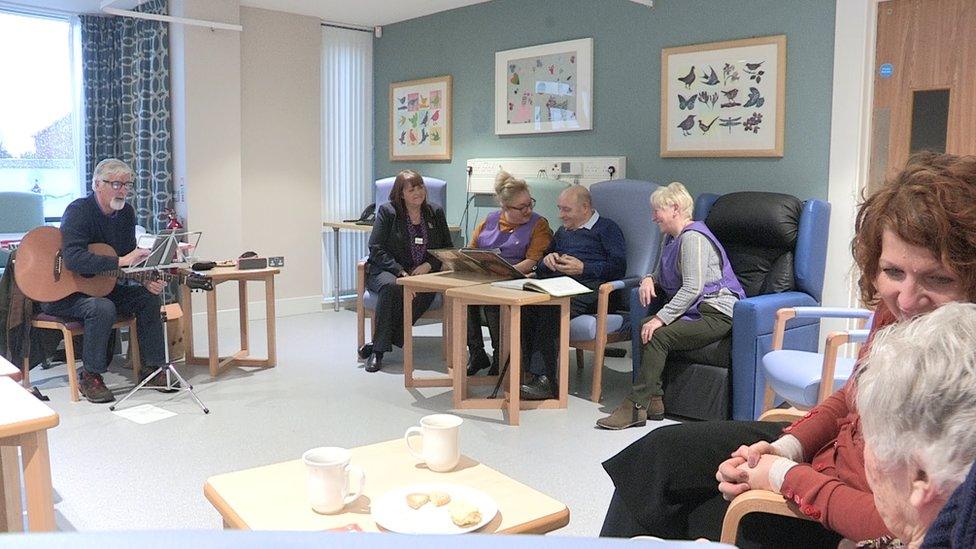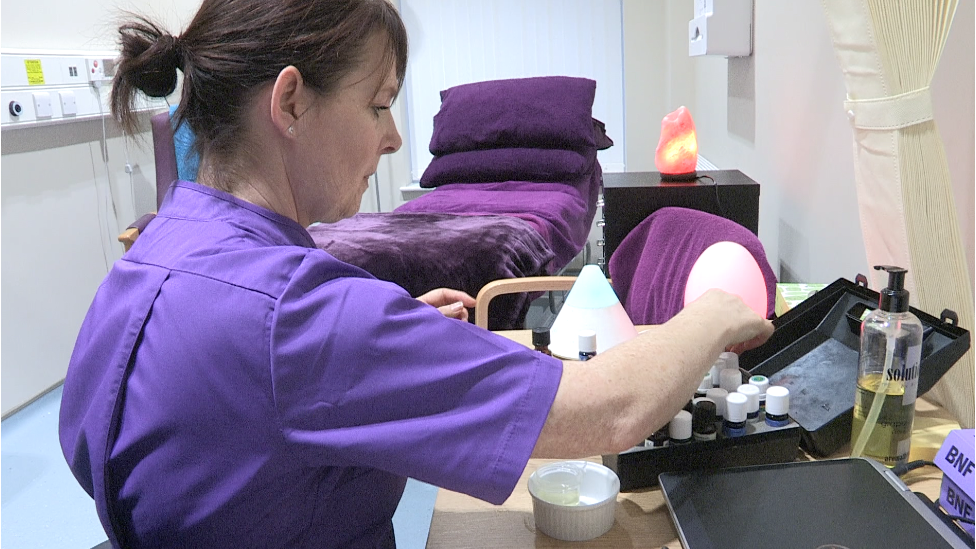Dementia: 'If you did sit and cry people understand'
- Published
A "wellbeing" clinic tackles isolation among patients and carers dealing with dementia.
Palliative care is often associated with patients in the terminal stage of cancer but it's also a much needed intervention for those living with dementia.
The Northern Ireland Hospice has developed a Dementia Wellbeing Clinic.
It comes after identifying a need to support people with the life-limiting condition and their carers.
Patients attend the outpatient clinic with their carers for eight to 12 weeks and are assessed for symptoms.
Emily Wilson and her husband Jim were referred to the clinic after he was diagnosed with Lewy Body Dementia with Parkinson's in 2014.
"I must admit my first thought was no, leave it alone, hospice is not really for us, because I think people have a misconception about hospice," she said.
'They look at the whole person'
"I knew that there is no cure for the disease Jim had, but eventually we came here and it was absolutely brilliant."

"People think of dementia as just memory loss and the disease, but it's much more than that.
"When you come to hospice they look at the whole person, they don't only look at the physical aspects and the emotional aspects, they also look at the spiritual aspects, mental health, they look at the whole person."

Mrs Wilson said her husband looked forward to attending the clinic and gained a great deal from the specialist care.
"He enjoyed his time here, loved the singing. We found out singing is an absolutely wonderful therapy for anybody, never mind somebody with dementia," she said.
"Also the art therapy. He joined in, he made things he drew, it was just that whole being included.
"As well as that, it's the support you get where you are in a room with other people who are maybe further along the journey or maybe not as far as you and it's a safe space where you can share your experiences."

She added: "It's just wonderful support, it's a place where you didn't feel embarrassed and if you did sit and cry people understand if you get emotional."
Joanne Ballantine, hospice nurse specialist for dementia, said palliative care for people with dementia is a relatively new approach.
"Somebody with a dementia, unfortunately it is a life-limiting illness so therefore they do and should have access to specialist palliative care," she said.
"As a hospice nurse specialist I can see them for assessment for symptoms, we also have access to physiotherapy and occupational therapy but our programme also includes a creative therapy aspect to it.

"Patients may get a chance to participate in music therapy or artwork or reminiscence, all things to stimulate cognition and to help with the symptoms that they are experiencing at that time.
"We also have a complementary therapy programme that is bespoke to support the person with dementia and their carer.
"We have an active social work programme, which will support the carers, but equally we can work with the patient and the carers together if there is some social strain at home or issues over care management that they need support with."

Ms Ballantine said the Dementia Wellbeing Clinic is for patients and carers in the Belfast Trust area who can access the service through a referral from their GP.
She said anyone who has dementia or is caring for someone with dementia should ask their GP for a referral to the hospice's service if they are having any struggles.
The Northern Ireland Hospice is hosting the first international conference on the subject of Palliative Dementia Care in Belfast on the 8 - 10 May 2019.
- Published1 January 2019
